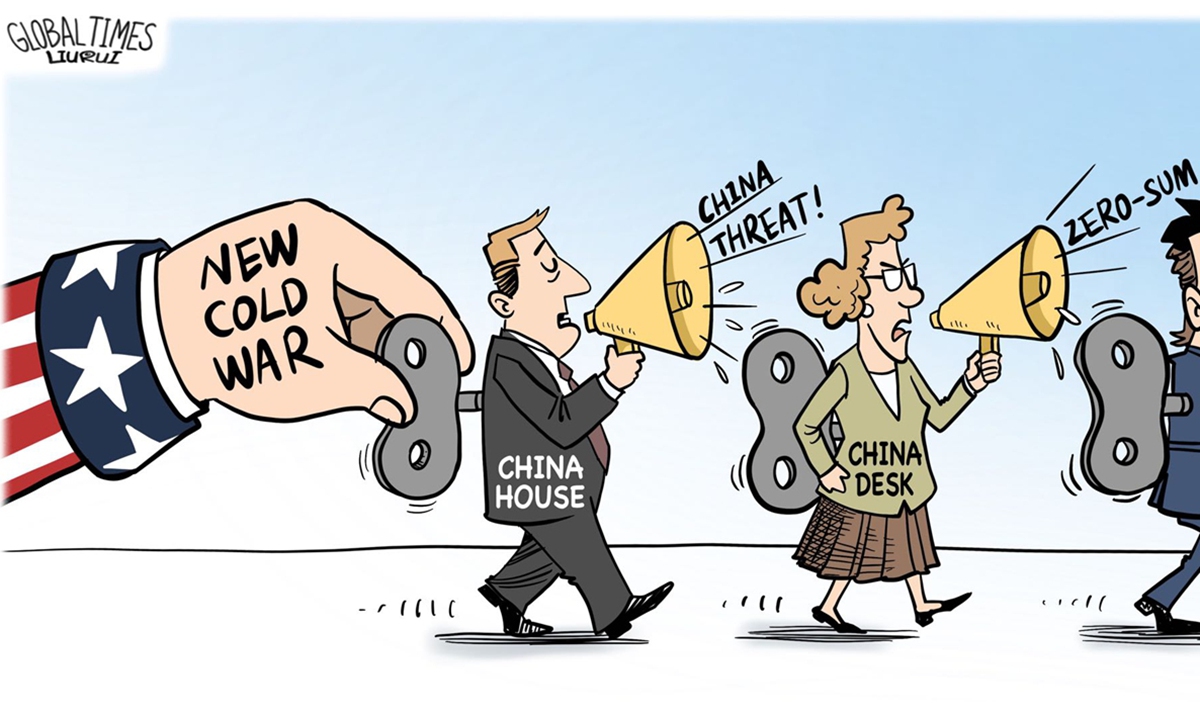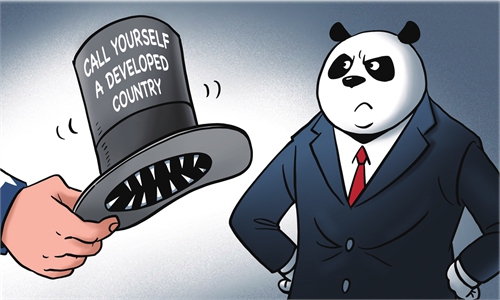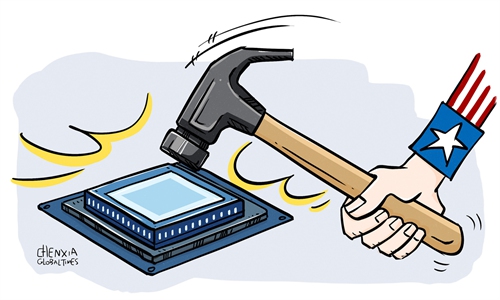US bipartisan politics make building guardrails around China-US ties more difficult

Illustration: Liu Rui/GT
US media is once again circulating news that the US government is trying to improve the deteriorating US-China relations caused by the balloon incident. The US has often conveyed such a message which is ultimately washed away by Washington's actions.
Since the current US administration took office, it has repeatedly claimed an attempt to put "guardrails" on US-China relations. But the US side has never explicitly explained what these "guardrails" are, let alone taken any valuable, concrete "action" toward their implementation.
The reality we see is that Washington has repeatedly launched various policies to contain and suppress China. They either find some reason to sanction Chinese companies or create the illusion of a China threat internationally, block Chinese manufacturing in the global market, or form all kinds of military or paramilitary alliances against China while using the Taiwan question to keep pushing their agenda.
Biden and his cabinet officials have stressed that "we want to compete with China and not seek conflict." The more Washington says this, the greater the likelihood of a shift from competition to conflict. This is directly related to bipartisan politics in the US.
US-China relations have fallen victim to US bipartisan politics.
The current split in US domestic public opinion has made it difficult for the two parties to find policies that reflect bipartisan compromise and cooperation in solving specific domestic issues. This is seen by some US scholars as a "political collapse" that is turning into an all-out war of "us versus them," a kind of "harmful polarization" that recurs amid democratic collapse.
It is within this political context that both parties realize that they need to cooperate in order to gain more support for the vote. Unfortunately, the "China threat theory" has thus gripped both parties. They can either compete with each other over who can pull off more vicious tricks when it comes to "competing" with China, or demonstrate their willingness to work together to the public.
Not long ago, the US House of Representatives established the Select Committee on the Strategic Competition Between the US and the Chinese Communist Party and held Its first hearing. The hearing became a bipartisan "indictment" of China's alleged "aggression," "threats," and "challenges" to the US.
It appears to be a bipartisan consensus, but this consensus was not designed to install guardrails around the conflict, but rather to make the building of guardrails more difficult.
When US Congress has such a committee, those people have to find something to do. With both parties jostling to be tougher on China, this committee can do nothing but further motivate lawmakers and the White House to take a tougher stance against China.
The bipartisan race has created a situation where other options, including proposals on de-escalating China-US relations, are unlikely to become policy options.
It's not that Washington politicians don't understand how and why they need to install guardrails, but no one wants to be targeted as weaker by the other party and lose votes over it. As elections in the country are about to begin, any policy proposal to reduce or suspend pressure on China will have difficulty in gaining support from either party.
The US-China relationship involves significant national strategies for both governments and is pivotal to global peace and development. It is equally a matter of how two civilized nations with different political systems get along.
Implementing the strategy requires strong political control. It is It is natural for the US to see China as a competitor and use this viewpoint as a major national strategy to enhance its competitiveness and maintain its hegemonic position. But this strategy is increasingly becoming a "zero-sum game" in the US' attempt to defeat China on a global scale.
The reason Washington has proposed guardrails is that it understands the disastrous consequences of moving the US and China toward conflict. However, Washington's political control has failed significantly due to the US bipartisan political system, making it difficult to control the strategy's slide into dangerous confrontation or even war. That is the greatest threat to the peaceful development of the world.



